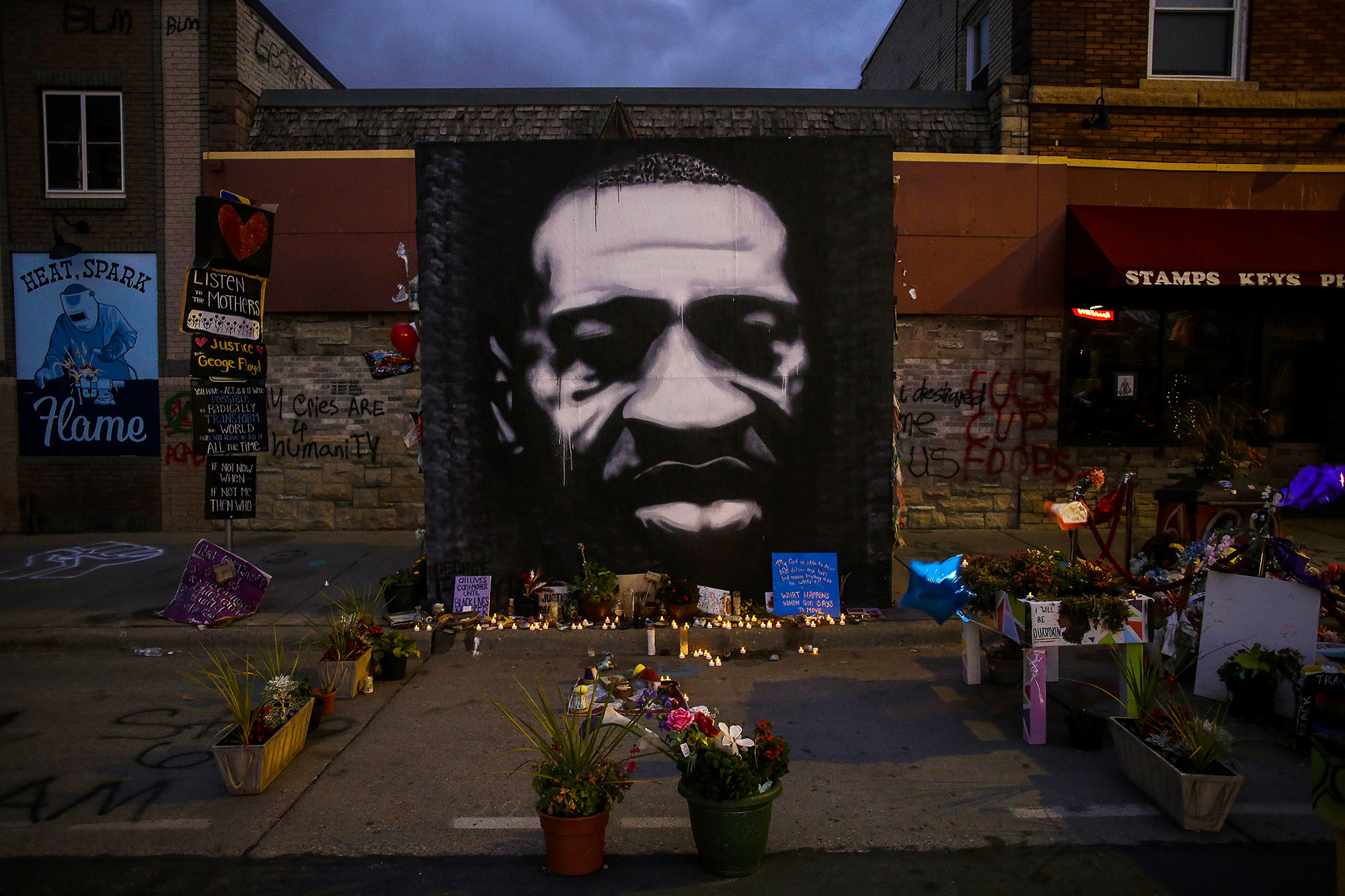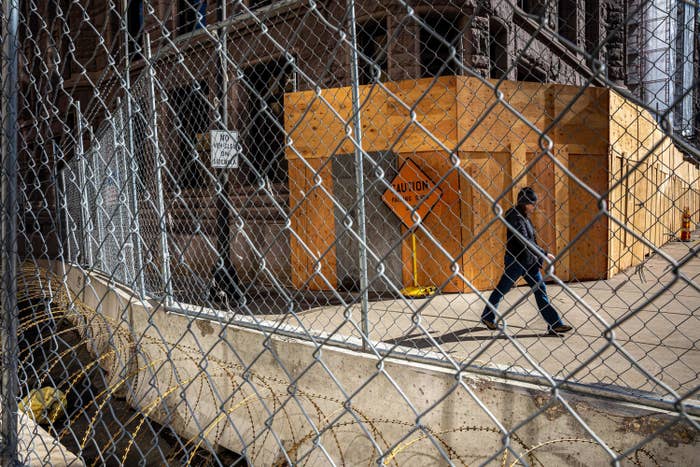
Minneapolis is on edge as the murder trial of Derek Chauvin — the former police officer accused of killing George Floyd — is set to begin on Monday.
The city has spent the last eight months preparing for the high-profile trial and possible civil unrest, similar to last year’s protests following Floyd’s death. Barricades and fences have been erected in front of government buildings. Thousands of National Guard members and police officers have been called in as the city has become a “war zone,” according to local activists who accused officials of caring about the safety of property over people.
While city officials say they are engaging with several community associations, including faith-based, business, and cultural organizations as well as neighborhood groups, several activists at the forefront of demanding racial justice and police accountability in Minneapolis say they did not hear from city leaders until Thursday — just days before the trial — and were not involved in the public safety plan. Local legislators, worried about police violence against protesters, said the city has not learned its lessons from last summer.
“None of us have heard a damn thing from these people,” Michelle Gross, president of the Communities United Against Police Brutality (CUAPB), said at a press conference with other organizers last week. “I don’t know who they think they’re talking to, but it sure isn’t us.”
Last May, in a video that horrified the world, Chauvin was seen crushing Floyd’s neck with his knee for about nine minutes as Floyd, handcuffed and on the ground, pleaded that he could not breathe. Floyd died in police custody over allegations that he used a counterfeit $20 bill at a grocery store.
Chauvin is charged with second-degree murder and manslaughter. Three other officers involved in Floyd’s death will be tried together in August. The police killing of yet another Black man fueled weeks of protests against police brutality. In Minneapolis, businesses were damaged and looted and buildings burned as police responded to the protests with force and violence.
“Four Minneapolis police officers killed a man in a horrific way that led to international protests and that caused immeasurable pain and trauma in our community,” City Council President Lisa Bender said in a public safety preparation briefing last week. “I still don’t think the city is stepping up to meet the moment.”
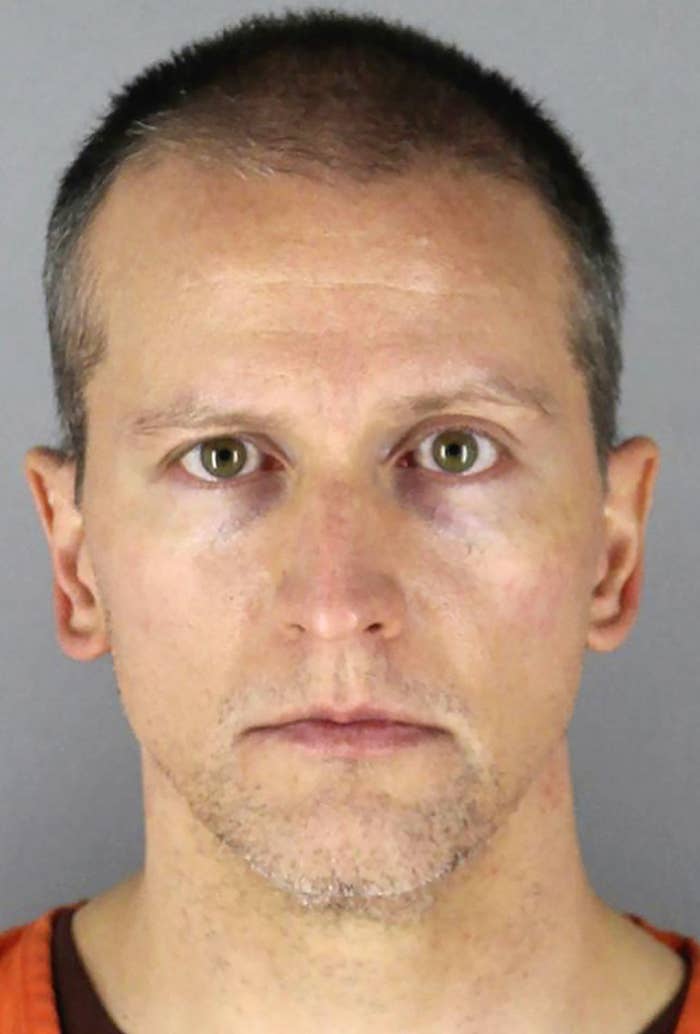
Chauvin’s trial is set to begin Monday, with the first three weeks dedicated to jury selection. Opening arguments are expected on March 29, and the trial’s expected to last until the middle or end of April.
Motions filed by Chauvin’s lawyer, Eric Nelson, suggest that his defense strategy will focus on Floyd’s use of drugs and preexisting medical conditions as his cause of death. The medical examiner ruled last June that Floyd’s death was a homicide caused by “cardiopulmonary arrest complicating law enforcement subdual, restraint, and neck compression.”
It has been notoriously difficult to prosecute, let alone convict, police officers in the US. While prosecutors are confident they have a strong case, they have said that convicting Chauvin will be difficult.
“History does show that there are clear challenges here,” Minnesota Attorney General Keith Ellison, whose office is prosecuting Chauvin, said last year.
Minneapolis Mayor Jacob Frey’s office told BuzzFeed News that city leaders, including the mayor, the police department, and the health department, have already engaged or plan to do so with dozens of associations, including faith-based, minority, and cultural groups, business advocates, and all 70 city-funded neighborhood organizations, to share information about the trial and to get feedback from the community.
The goal of partnering with these groups is to create a “two-way” real-time communication channel to share information about the trial and public safety and transit plans, to “identify and dispel rumors,” and to “address community trauma” related to the trial, David Rubedor, the city’s director of neighborhood and community relations, said at a press conference last month.
In a press conference Thursday, Frey said the city had been working with “peaceful protesters” and community groups ahead of the trial.
However, groups at the forefront of demanding racial justice and police accountability who are organizing protests on Sunday and Monday told BuzzFeed News that they had not heard from the city.
“[Frey] has not been in touch with anyone who is actually planning protests in the city,” Gross of CUAPB said on Thursday. She said the organizations that the city is engaging with “are not the people on the streets demanding justice and protesting police violence.”
“These are the people [they] should be talking to.”
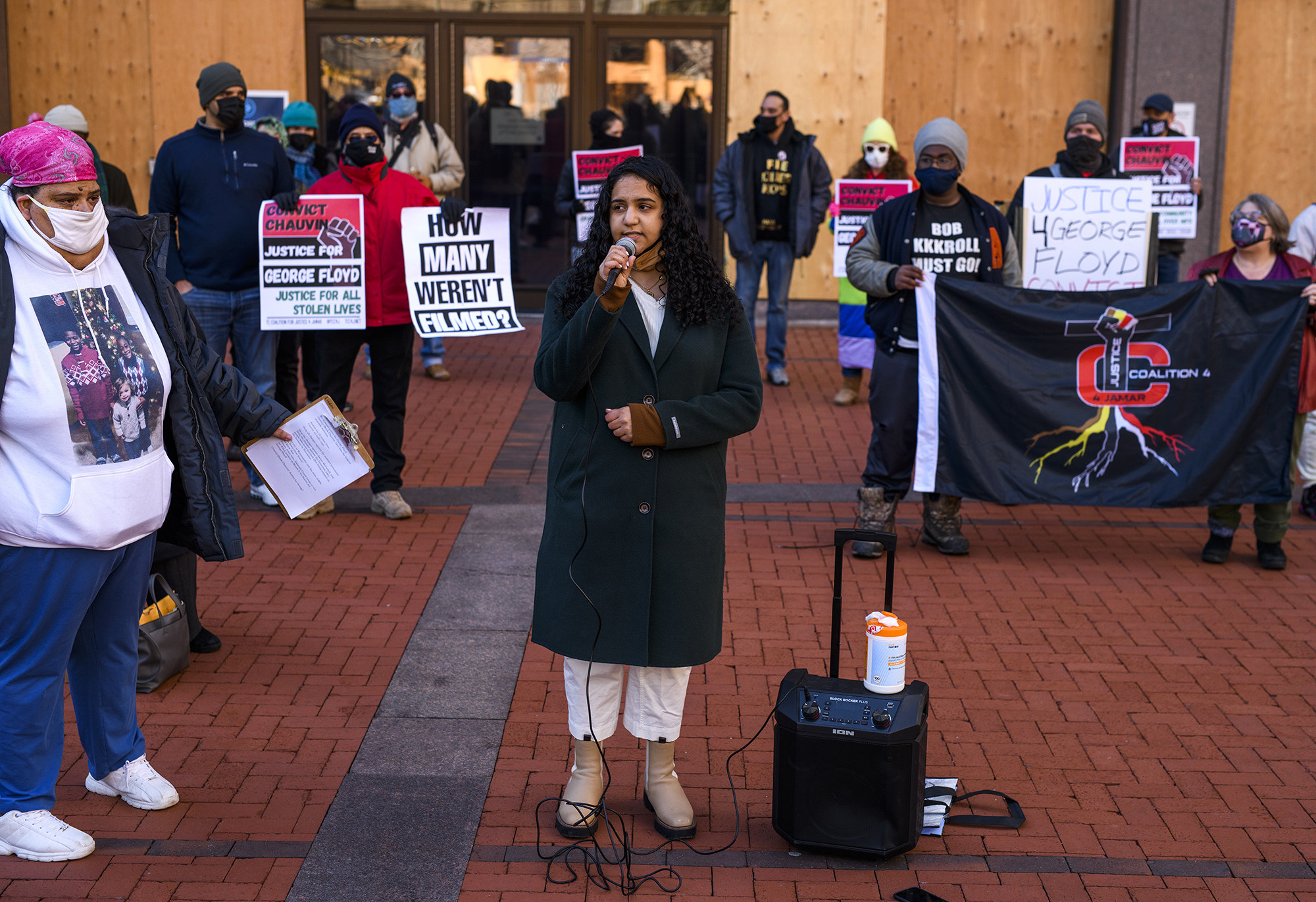
Trahern Crews, the lead organizer of Black Lives Matter Minnesota, also said the city has not reached out to his group, adding that racial justice activists could have provided the city input that would help prevent police violence against protesters like that seen last summer.
“They’re not reaching out to people who have been directly impacted [by police brutality],” Toshira Garraway, the founder of Families Supporting Families Against Police Violence, told BuzzFeed News. “If you don’t have those people’s voices at the table, then whatever you’re doing is inaccurate. It’s nothing about us, without us.”
On Thursday, more than two hours after BuzzFeed News reached out to the Minneapolis Police Department for comment on whether Chief Arradondo had reached out to the groups involved in Monday’s protest, Gross said she received an email at 3:38 p.m. CST from the police chief’s office asking for a 4 p.m. meeting.
When Gross did not respond, she said Arradondo texted her at 4:06 p.m. asking her if she had some time for him to provide information on plans for the trial.
Gross said she was “offended” that the police chief would reach out to her three days before their planned protest. She said that the coalition of organizers for Monday’s protest would decide Friday whether to engage with the police department at this late stage. Garraway said that she was not contacted by the police department, and Crews did not respond to a request for comment.
In a statement to BuzzFeed News on Friday, the mayor's spokesperson said Frey “and his administration are in regular contact with a host of community organizations, and that includes the lead up to the trial of Derek Chauvin. He has been in close touch with the Minneapolis NAACP and understand staff is engaged with CUAPB.”
Activists say officials have been overly focused on physically securing the city as a way of silencing peaceful demonstrators. Frey acknowledged the frustration, anxiety, and trauma surrounding police trials but emphasized during a press conference last month that safety is the “top priority through this very difficult time in our city.”
“We anticipate that trauma increasing as we get closer into jury deliberations and the verdict, and we believe that it is on us to honor the magnitude of this moment and ensure that our families in this city feel safe,” Frey said.
To do so, Frey said, the city will gradually increase law enforcement presence as the trial progresses, ultimately deploying up to 2,000 National Guard members and 1,100 police officers from multiple jurisdictions.
The plan involves sending teams of National Guard soldiers and cops to patrol key business areas, protect government buildings, and accompany fire and EMS crews. Police cordons will be set up around demonstrations to prevent vehicles from driving close to crowds, officials said. The Hennepin County Government Center, where the trial will take place, will be closed to the public.
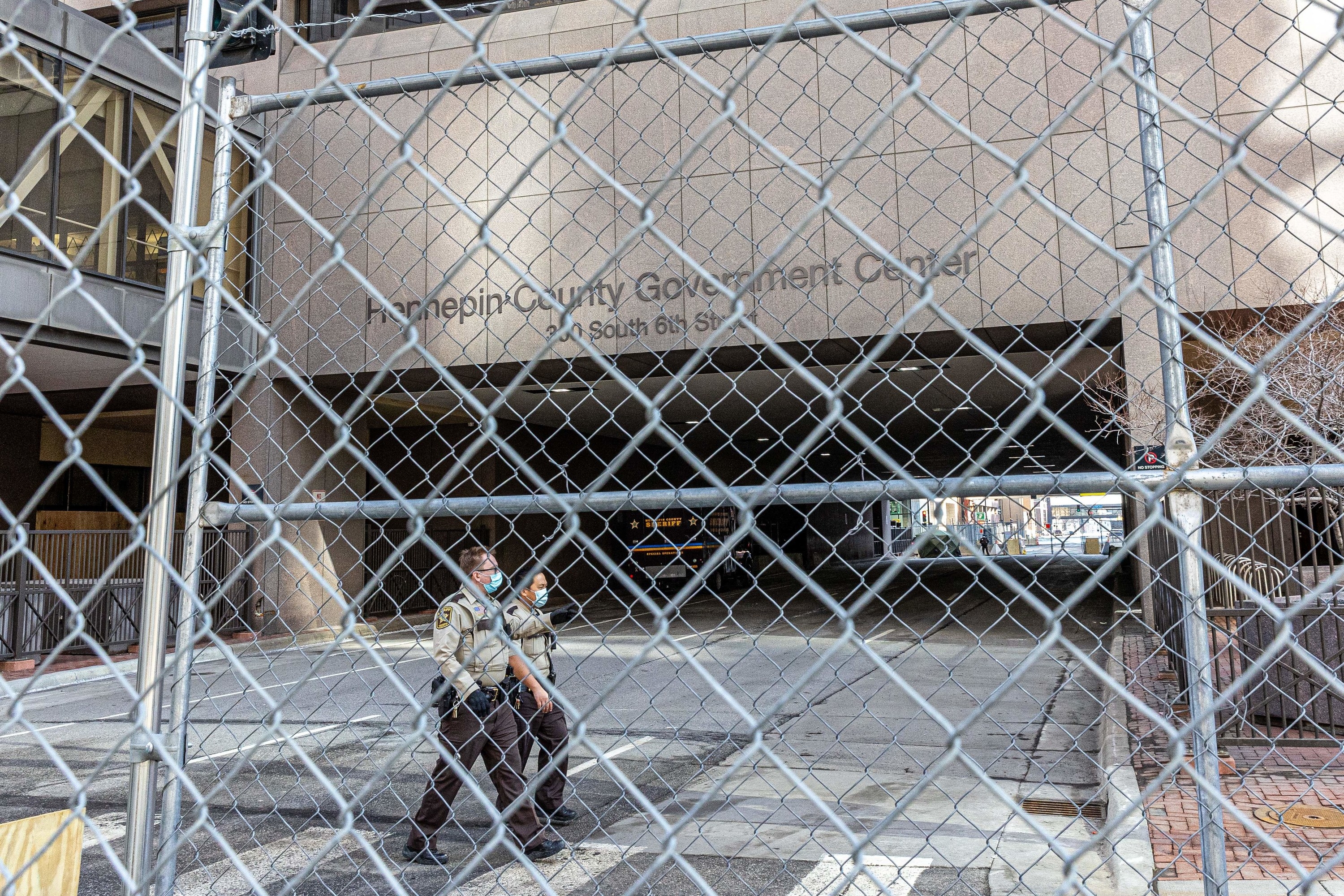
“The city is frankly losing their minds over security,” Gross said. “They are more worried about people’s reactions to the killing of George Floyd than they are about the conditions that led to the killing.”
In public briefings, Chief Arradondo has reiterated that the goal is to ensure peaceful protesters can demonstrate “free from harm and intimidation.”
But activists and legislators are not convinced of the plan, accusing city and state leaders of attempting to squash peaceful demonstrations by focusing on the safety of property over people.
“Instead of protecting working and struggling people, instead of making this city and our community safe, the cops have turned Minneapolis into a war zone,” Shane Clune of Minnesota Workers United said at a Feb. 25 press conference.
“All this money, all this equipment, all this effort they’re spending isn’t going to make any person safe,” Clune said. “This is about the safety of property and the comfort of the powerful.”
At the same press conference, Crews of BLM Minnesota compared Minneapolis’s militaristic preparations ahead of the trial with the lack of security against armed white supremacists who stormed the US Capitol on Jan. 6.
“You didn’t see any fences up like you see here today, you didn’t see the National Guard, and you didn’t even see the police out there to stop them when they were out there demanding to hang Mike Pence and kill Nancy Pelosi, but for peaceful protesters, they’re bringing in the National Guard and the police,” Crews said.
Nekima Levy Armstrong, civil rights attorney, activist, and the executive director for Wayfinder Foundation, told BuzzFeed News she voiced many of these concerns on a phone call with Frey last week when he asked her for feedback on the city’s plan.
“The response to police violence shouldn’t be more police. I let the mayor know that,” said Levy Armstrong, who lost to Frey in the 2017 mayoral race.
She told BuzzFeed News that the city should be co-creating the plan with community members and activists, adding that she told Frey “as people of color, as Black people, we don’t feel more safe having more officers patrolling our streets during protests.”
“I believe that the city, as well as the state, are using their power to silence nonviolent protesters and to diminish our ability to engage in demonstrations,” she said.
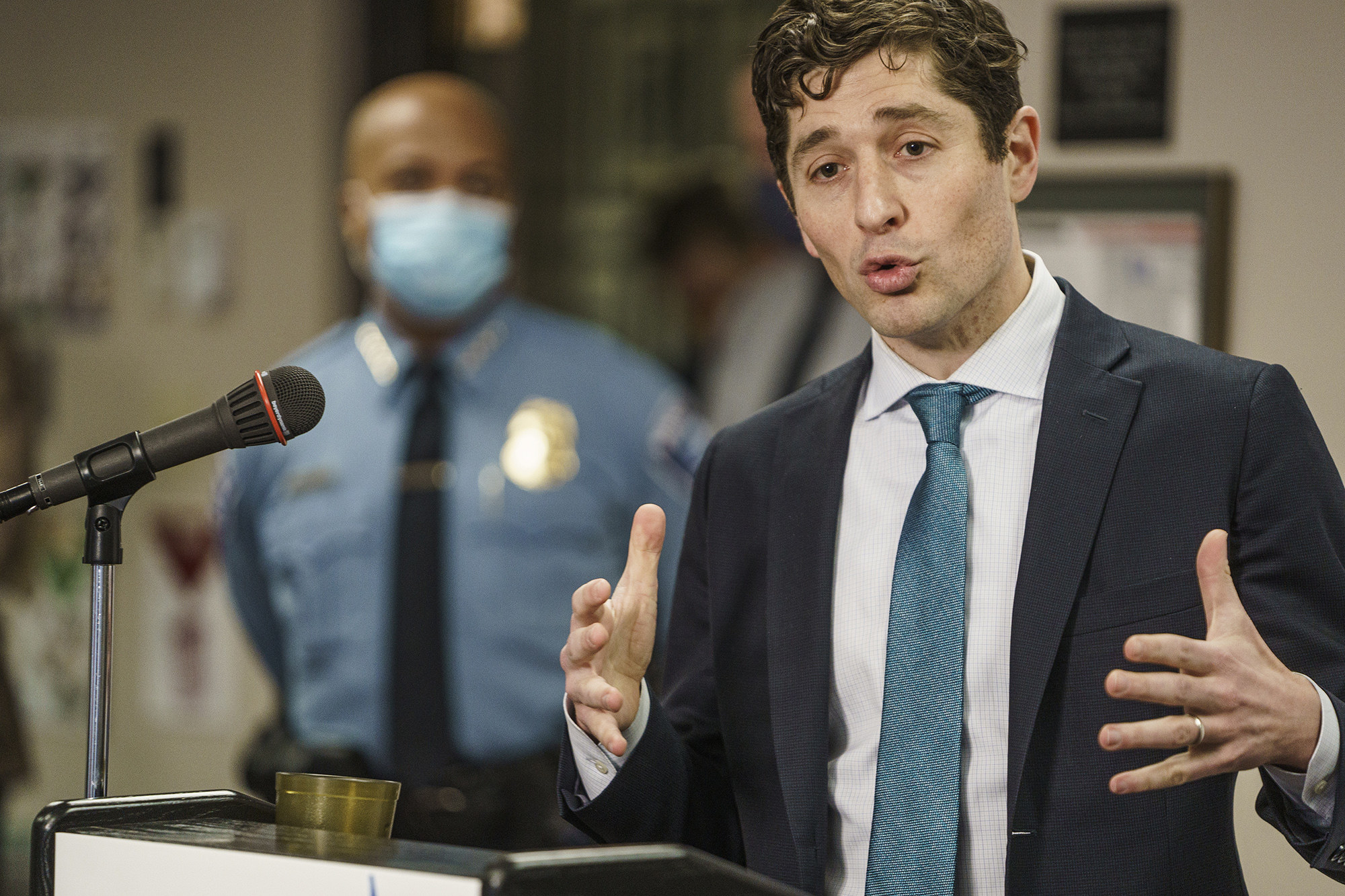
Levy Armstrong said that although Frey told her he understood her concerns, she said she felt like it was “an obligatory phone call.” She said that the police chief texted her on Thursday.
Several city council members also expressed their disappointment that the city’s plan focused primarily on law enforcement’s response.
“I do feel that the fundamental lesson was not learned by the city overall from last year, which is that our primary responsibility is to care for the people of this city” and create an environment in which people “don’t have to engage in riots or destructive behavior in order to feel heard,” city council member Phillipe Cunningham said in a public safety briefing last week.
Council President Bender said city leaders had yet to acknowledge the community’s pain and trauma. “Too many city leaders think that the most grown-up response to a problem is always with force and always to begin by sending people with guns,” she said. “I don’t think we can police our way out of police violence.”
During a press conference Thursday, Frey acknowledged concerns about the increased law enforcement presence but said that the officers have received de-escalation training.
The city’s plan to deploy the full capacity of law enforcement during the verdict has led activists to wonder whether officials expect Chauvin to walk free.
“Based on the preparations, it seems like the city knows the outcome of this trial,” city council member Jeremiah Ellison said at the public safety briefing, recalling what a community member told him.
Crews said the city’s plan to bring in the military seemed to suggest it was preparing for an “unjust verdict.”
“The best safety plan would be to convict Derek Chauvin,” he said. “We’re praying for the best, but preparing for the worst.”
Despite what they say are the city’s efforts to silence them, activists are gearing up to protest through the trial.
“These barricades, all this fencing and barbed wires will not stop us from getting in the streets and speaking truth to power and demanding justice,” Levy Armstrong told the crowd at the organizers’ press conference last week. “We will not be afraid.”
